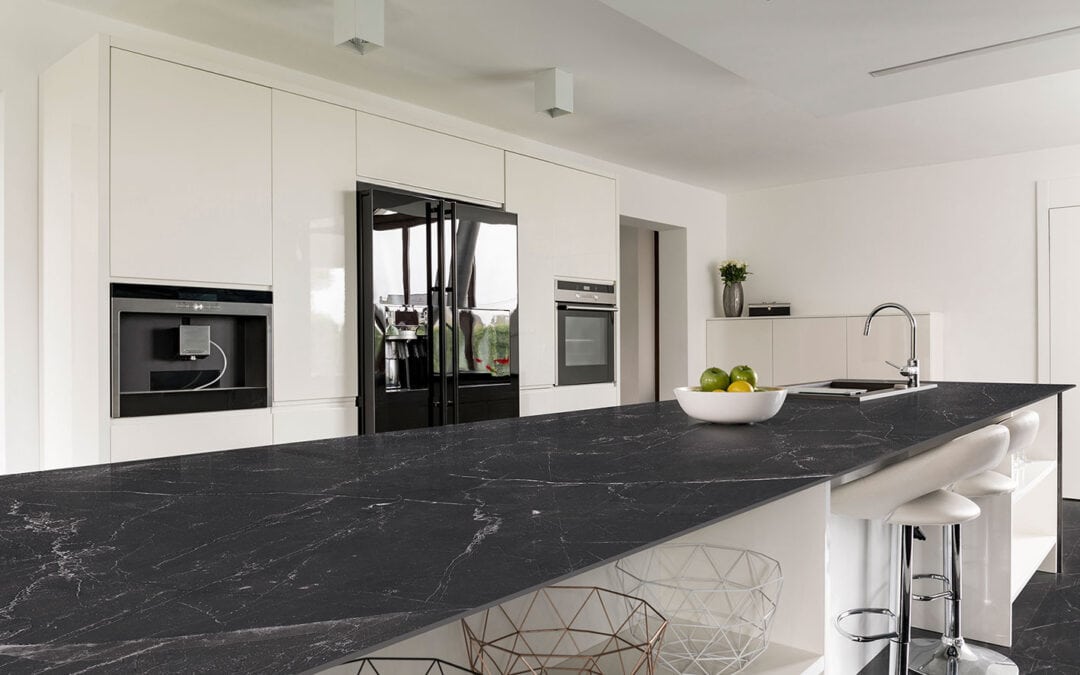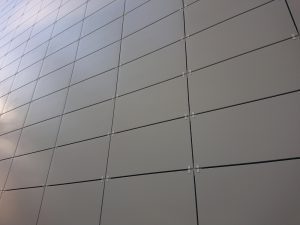Introduction
Selecting a suitable countertop material is crucial for anyone designing or renovating a kitchen, restaurant, or commercial space. With many options available, weighing each material’s pros and cons is essential to make an informed choice. This guide will explore ten popular countertop materials, providing insights into their strengths and weaknesses. Our goal is to assist you in making a well-informed decision that aligns with your aesthetic preferences, functionality needs and budget constraints.
Commonly used countertop materials
Each countertop material offers a distinct fusion of aesthetics, functionality and maintenance needs, catering to diverse preferences and budget constraints. Understanding these nuanced strengths and vulnerabilities is pivotal when choosing the right countertop for specific spaces. This knowledge empowers informed decisions, ensuring the selected material aligns with individual preferences and maintenance capabilities. By comprehensively evaluating these factors, individuals can navigate the array of options available, considering the unique characteristics of each material to make a well-informed choice that suits their project requirements.
Porcelain Countertops
Advantages: Porcelain countertops stand out for their exceptional durability, making them ideal for high-traffic areas like busy kitchens and commercial spaces. Their scratch and heat-resistant nature ensures longevity and resilience against daily wear and tear. Additionally, porcelain surfaces boast excellent stain resistance, maintaining their pristine appearance even after exposure to various food and liquid spills.
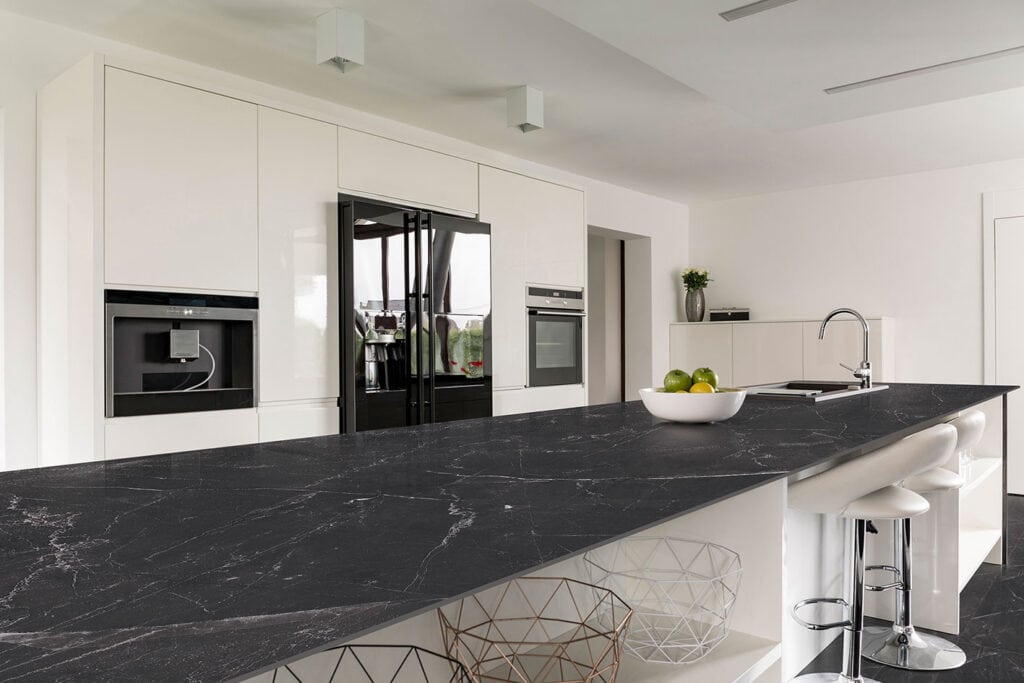
Disadvantages: Despite their durability, porcelain countertops can be vulnerable to cracking when subjected to heavy impact or dropped objects. While highly resilient, a considerable force can compromise their structural integrity. Handling heavy items is crucial to avoid potential damage and maintain their flawless appearance over time.
Granite Countertops
Advantages: Granite countertops are renowned for their natural beauty and individuality, as each slab offers a unique blend of colors and patterns. This uniqueness adds a luxurious touch to any space, making granite a sought-after option for those seeking distinctive aesthetics. Moreover, granite countertops exhibit excellent heat resistance, making them suitable for various culinary activities without damage.
Disadvantages: Granite requires periodic sealing to preserve its stain resistance. Without proper sealing, liquids can penetrate the surface, leading to staining. Additionally, while granite is durable, it can be more susceptible to scratches than materials like porcelain, especially if not adequately cared for or sealed.
Quartz Countertops
Advantages: Quartz countertops offer an extensive array of colors and patterns, catering to diverse design preferences. Their resistance to stains and scratches ensures long-term durability and being non-porous. They provide a hygienic surface that’s easy to clean, making them an excellent choice for kitchens where cleanliness is a priority.

Disadvantages: While highly durable, quartz countertops may not be as heat-resistant as porcelain. Excessive heat exposure can cause damage, such as discoloration or cracks, affecting the surface’s appearance and integrity. Care should be taken to avoid direct heat contact.
Marble Countertops
Advantages: Marble countertops exude timeless elegance with their natural veining and unique patterns, adding sophistication to any space. They also offer heat resistance, making them suitable for various culinary tasks.
Disadvantages: Marble’s softer and more porous nature than other materials makes it prone to scratching and staining. Regular sealing is crucial to protect the surface from absorbing liquids and to prevent stains. Careful maintenance is necessary to preserve its pristine appearance.
Solid Surface Countertops
Advantages: Solid surface countertops offer a seamless appearance, especially when integrated with sinks. Their non-porous nature makes them resistant to stains and ensures easy cleaning. Additionally, scratches and dents can be easily repaired, maintaining the countertop’s aesthetic appeal.
Disadvantages: While resilient, solid surface countertops may be susceptible to heat damage. Prolonged exposure to high temperatures can cause surface discoloration or even structural damage. Proper care and protective measures are essential to prevent heat-related issues.
Butcher Block Countertops
Advantages: Butcher block countertops bring a warm, inviting atmosphere to kitchens with their rustic charm. They are relatively easy to repair, as sanding out scratches can restore their appearance, maintaining their natural appeal.
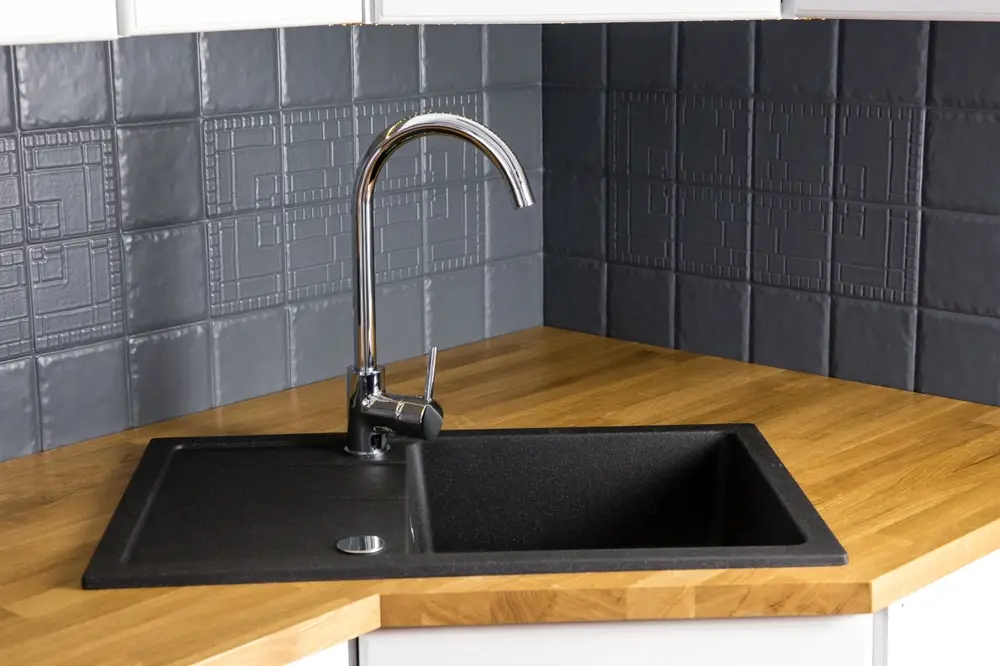
Disadvantages: Butcher block countertops require regular sealing to prevent water damage and stains. Without proper maintenance, they can be susceptible to bacterial growth and structural issues due to prolonged exposure to moisture.
Stainless Steel Countertops
Advantages: Stainless steel countertops are the epitome of durability. They can withstand high temperatures without damage, making them perfect for placing hot pans or pots directly onto the surface. Their resistance to stains ensures easy maintenance, even against acidic substances common in cooking. Moreover, they provide a sleek, contemporary aesthetic that complements modern kitchen designs flawlessly.
Disadvantages: Despite their durability, stainless steel countertops are susceptible to scratching. Everyday use can lead to visible scratches, which, although they add a patina of character over time, may not appeal to everyone. The scratches may require specific techniques or professional polishing to minimize their appearance, and they can become more pronounced with prolonged use.
Laminate Countertops
Advantages: Laminate countertops are economical and come in various colors, patterns, and textures. Their affordability makes them accessible to various budget ranges and relatively easy to maintain. Cleaning laminate surfaces is hassle-free, requiring simple wiping with mild detergent and water. Additionally, their versatility allows for replicating the appearance of more expensive materials at a fraction of the cost.
Disadvantages: Laminate countertops are susceptible to damage despite their affordability and variety. They can scratch easily, and burns or cuts may leave permanent marks. Water damage can occur if the laminate isn’t adequately sealed along the edges, leading to swelling and deterioration. Repairing damage can be challenging, and replacement might be the only viable solution for significant issues.
Concrete Countertops
Advantages: Concrete countertops offer a distinctive, customizable appearance that suits modern, industrial, or minimalist aesthetics. Their heat-resistant nature makes them suitable for cooking environments. The versatility of concrete allows for personalized designs, incorporating unique colors, textures and even embedded objects like stones or shells for a truly bespoke look.
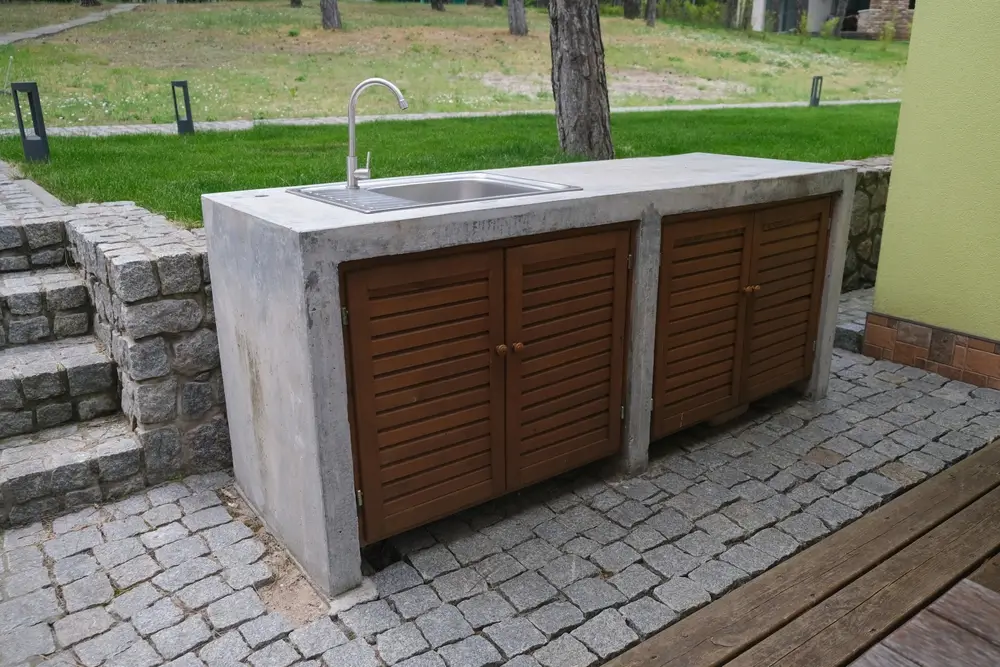
Disadvantages: Despite their visual appeal, concrete countertops are prone to cracking, especially if improperly installed or sealed. Regular sealing prevents stains, as concrete is porous and can absorb liquids. Maintaining the pristine look of concrete surfaces may require periodic resealing and diligent care to prevent damage.
Tile Countertops
Advantages: Tile countertops offer cost-effective versatility with various colors, patterns and designs. They are easy to install and replace, providing an opportunity for DIY projects. When a tile becomes damaged, it can be individually replaced without necessitating an entire countertop overhaul, saving time and money.
Disadvantages: While necessary for installation, grout lines in tile countertops can become magnets for stains and grime over time, requiring frequent and thorough cleaning. The tiles can chip or crack with heavy impact, compromising the overall aesthetic. Maintaining the grout lines and ensuring surface uniformity can be challenging over the countertop’s lifespan.
Conclusion
Choosing the suitable countertop material is a decision that must be reached while considering the aesthetics, functionality and budget. While each material has its strengths and weaknesses, porcelain countertops emerge as a standout choice for their durability, resistance to scratches and heat and minimal maintenance requirements. Whether you’re designing a home kitchen, a restaurant, or a commercial kitchen, we at Frontek recommend porcelain countertops to enhance your space’s visual appeal and functionality.


